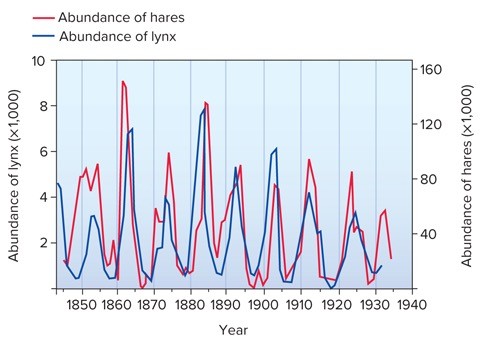When we say "populations evolve, not individuals," what does this mean?
A. Evolution does not happen.
B. Individuals cannot change, but genotype
frequencies in a population can change.
C. Evolution is the same thing as change in
genetic makeup in a population over time.
D. Only alleles change over time, not
genotype frequencies.
E. Only genotype frequencies change over
time, not alleles.
B
You might also like to view...
Which lineage has the largest number of Hox genes, reflecting their complex anatomy?
a. cnidarians b. cephalochordates c. vertebrates d. arthropods e. eurochordates
When a neuron is at rest, _____
a. it is at threshold potential b. gated sodium channels are open c. it holds less sodium than the interstitial fluid d. both it is at threshold potential and it holds less sodium than the interstitial fluid
The medical term meaning inflammation of the small intestine is __________
Fill in the blank(s) with the appropriate word(s).
 Scientists have discovered that when they provide supplemental food for hares, their density tripled. The figure above shows cycles of lynx and hare populations over a century's time. What do you predict would happen to the lynx and hare populations in an area where hares were provided supplemental food for one year?
Scientists have discovered that when they provide supplemental food for hares, their density tripled. The figure above shows cycles of lynx and hare populations over a century's time. What do you predict would happen to the lynx and hare populations in an area where hares were provided supplemental food for one year?
A. The lynx population would increase 1-2 years after the hares increased, then both would continue cycling down and up. B. The lynx population and the hare population would increase simultaneously, and stay at a stable high level permanently. C. The lynx population would decrease as hares increased due to exploitative competition, then slowly rise back to the original level. D. The hare population would increase, but the lynx population would be unaffected.